Photo essay: Vulnerable women and girls face compounded crises after Cyclone Mocha
Date:
Author: Alexandra Peard
In the aftermath of last week’s Cyclone Mocha, there are deep concerns for vulnerable women and girls in north-western Myanmar, many of whom were already facing dire conditions.
With clean-up efforts underway, reports and photos from humanitarian partners on the ground are providing a clearer picture of the scope of the cyclone’s destruction.
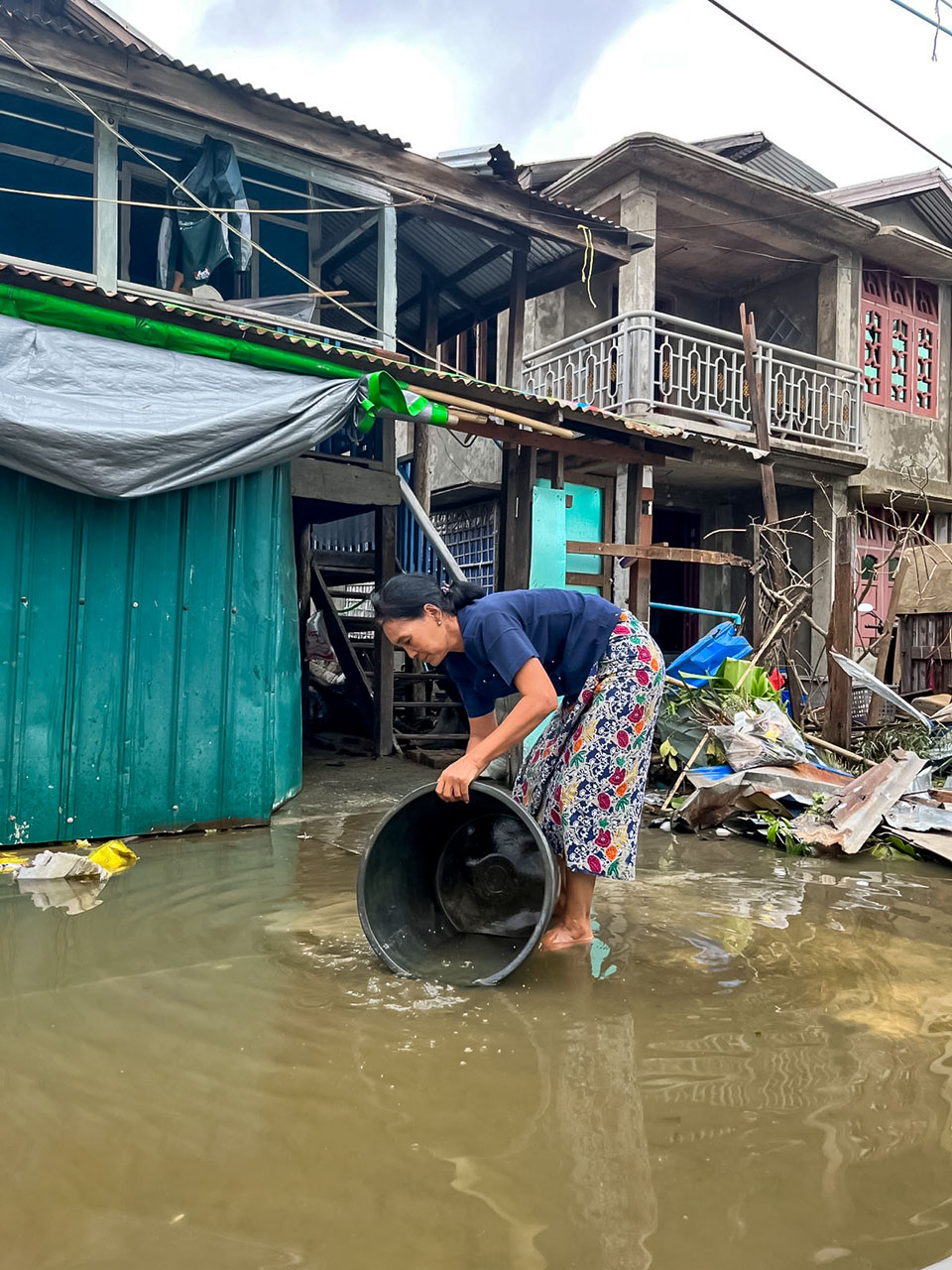
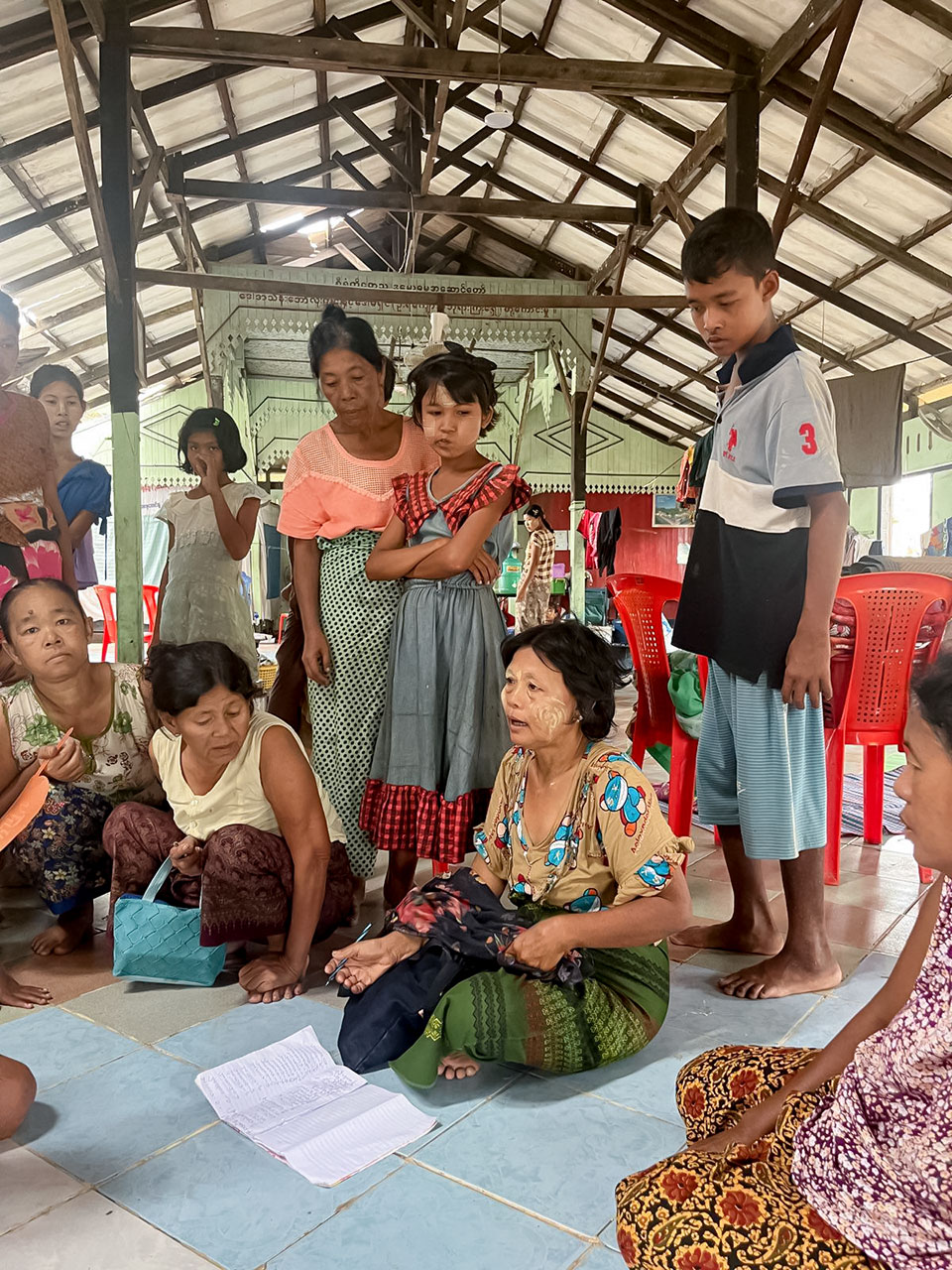
Many people have been left without safe shelter and have lost all their belongings. For people already living through the compounded crises of the COVID-19 pandemic, ongoing conflict and economic instability, the cyclone has made a dire situation even worse.
Vulnerable people – including women, expectant mothers, children and the elderly – are homeless and seeking shelter in evacuation centres and monasteries.
Those who have been able to return home now face the daunting task of rebuilding their houses with limited available resources.
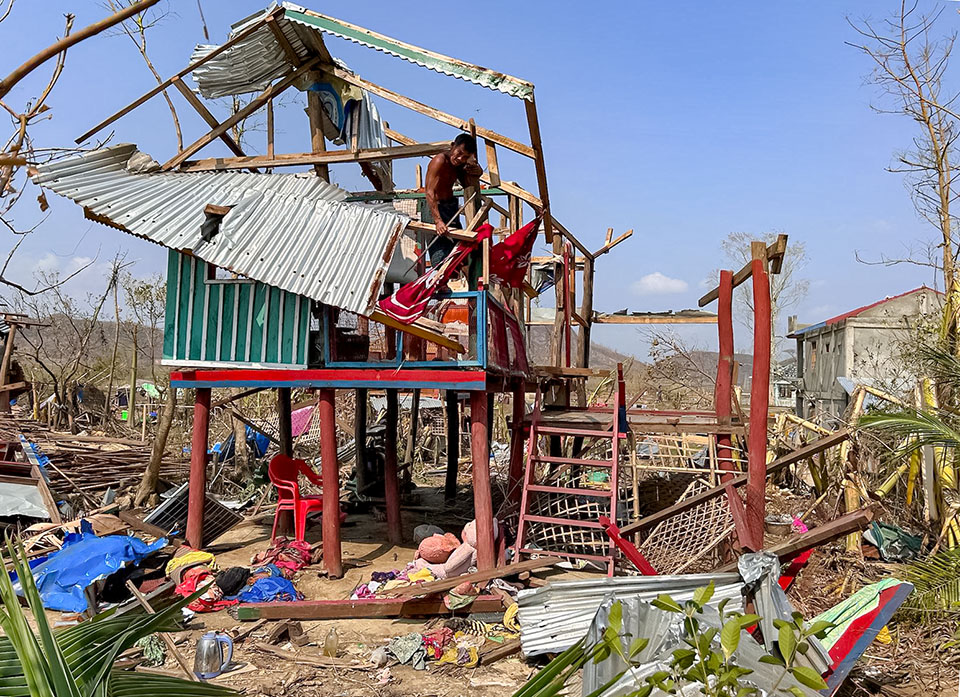
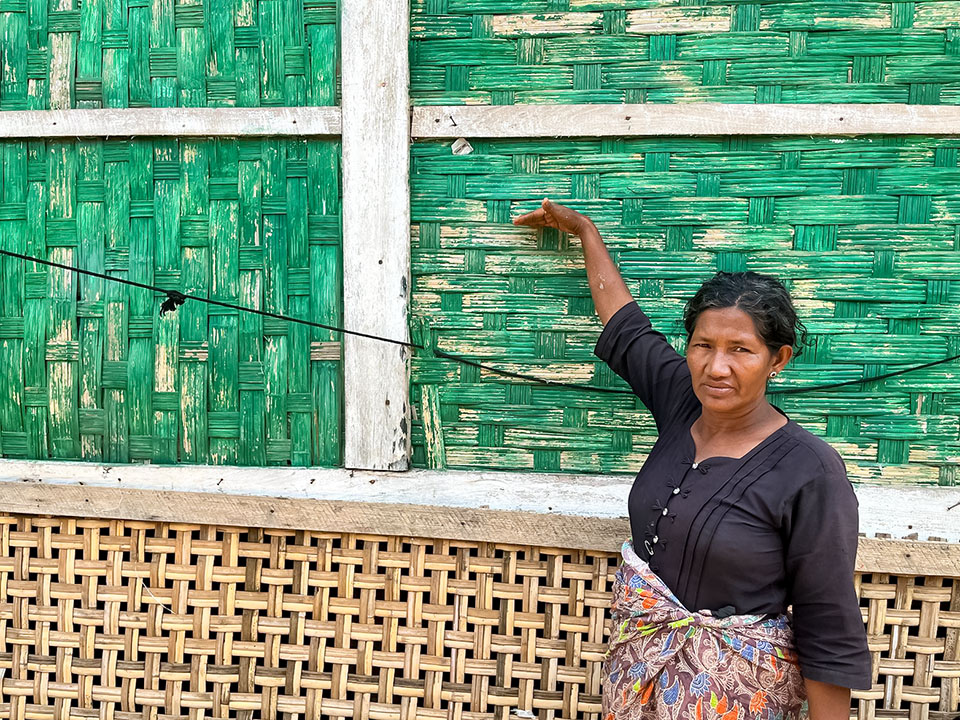
With significant damage to hospitals and clinics, pregnant women are struggling to access healthcare and there is an urgent need for sexual and reproductive health services.
In Rathedaung township, partners have reported that all rural health centres, hospitals and public schools have been destroyed.
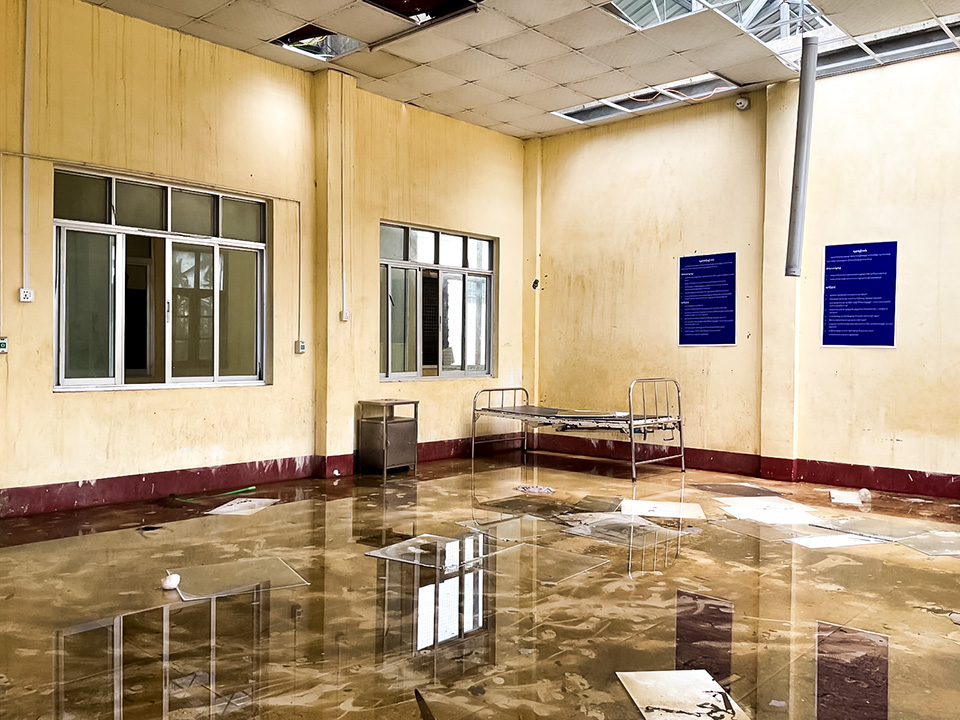
The destruction of shelters and latrines, combined with a lack of electricity, increases the risk of sexual and gender-based violence.
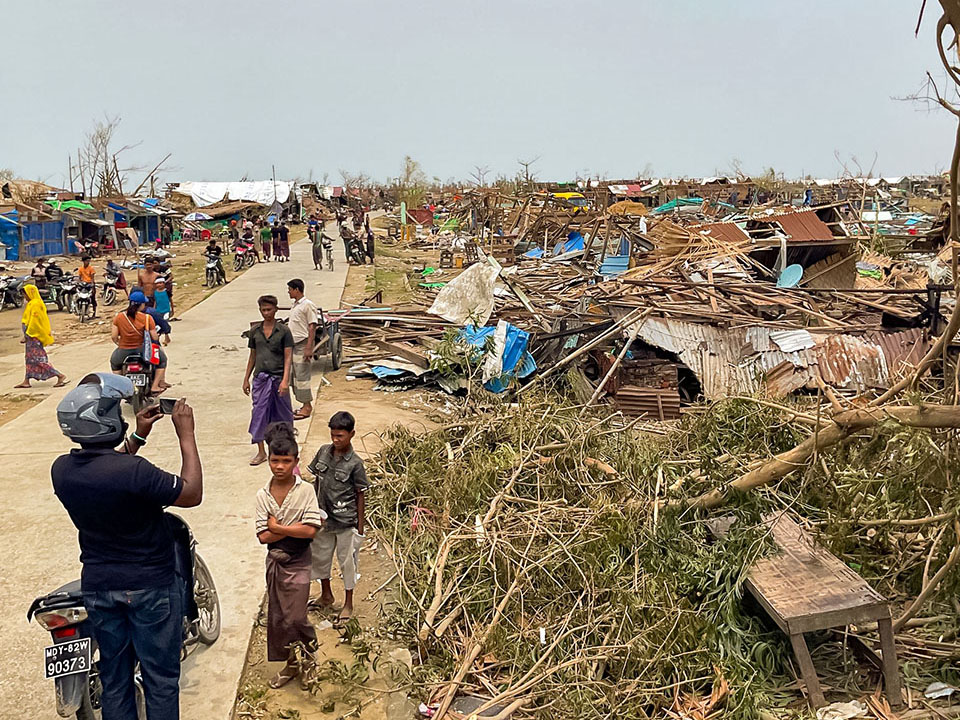
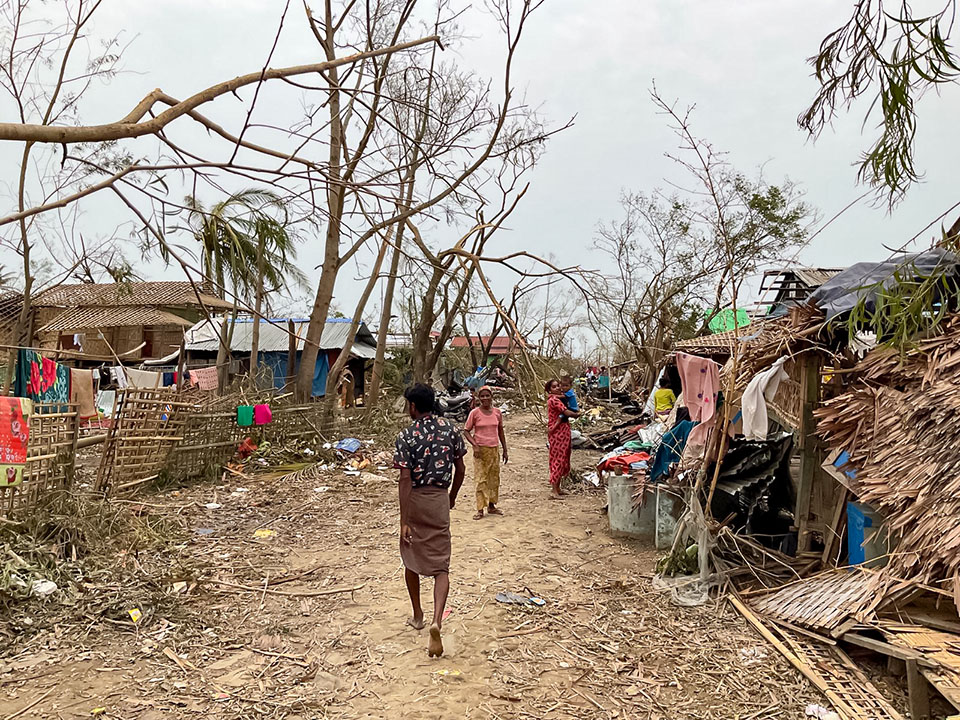
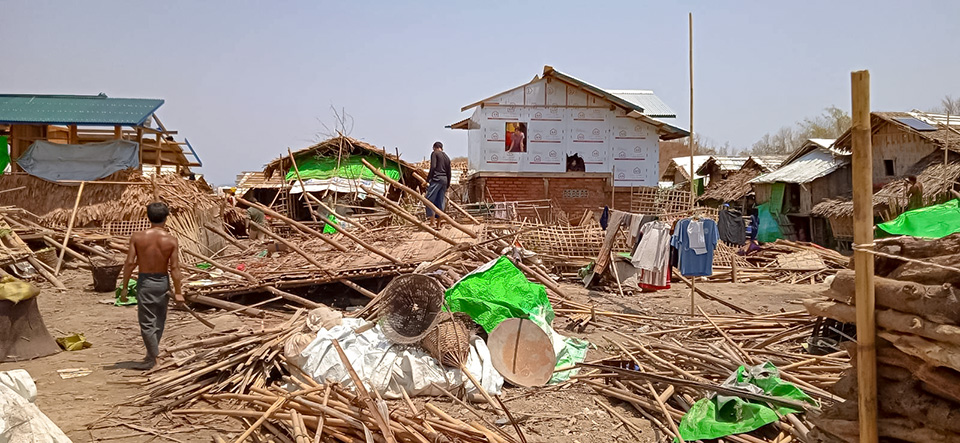
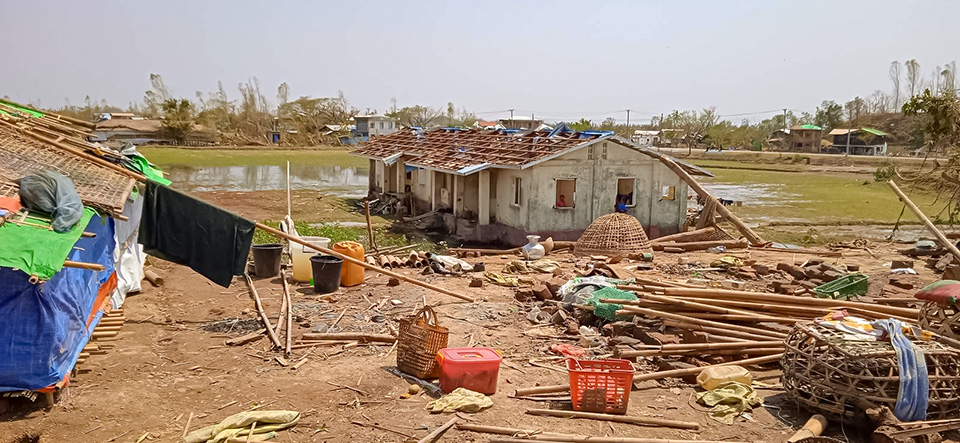
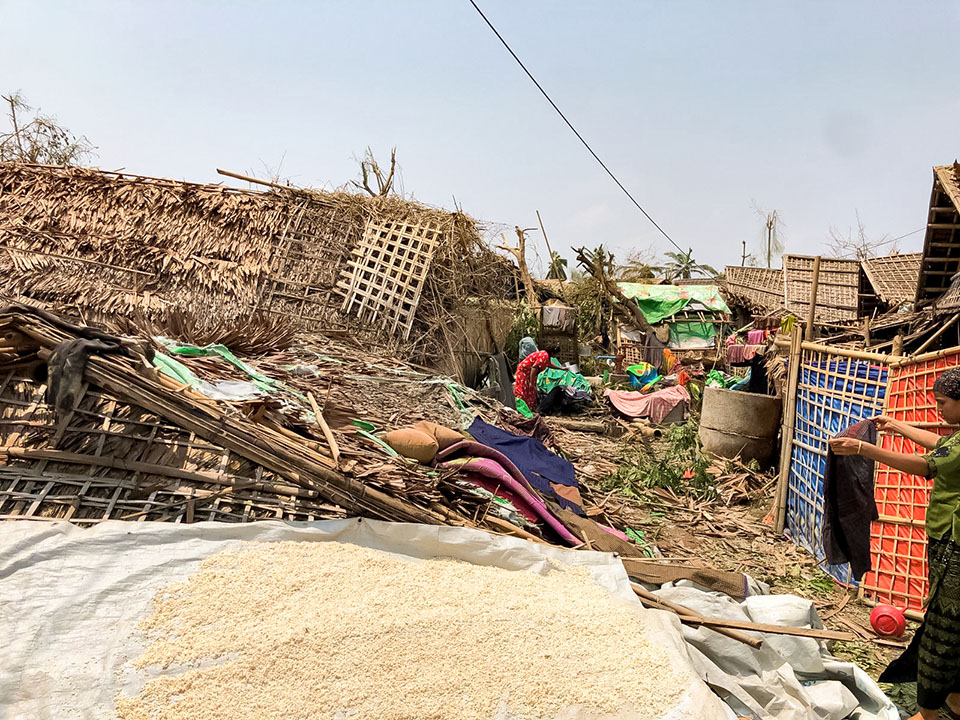
While some markets have re-opened, the limited availability and soaring prices for essential items, especially shelter materials, are making it extremely difficult for people to reconstruct their damaged homes and shelters.
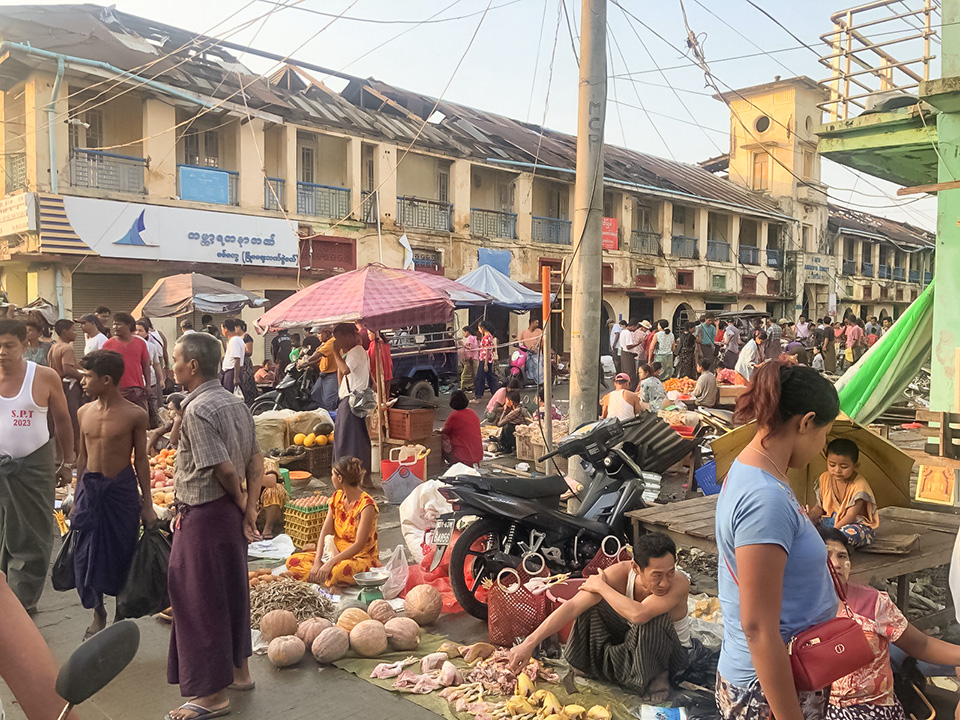
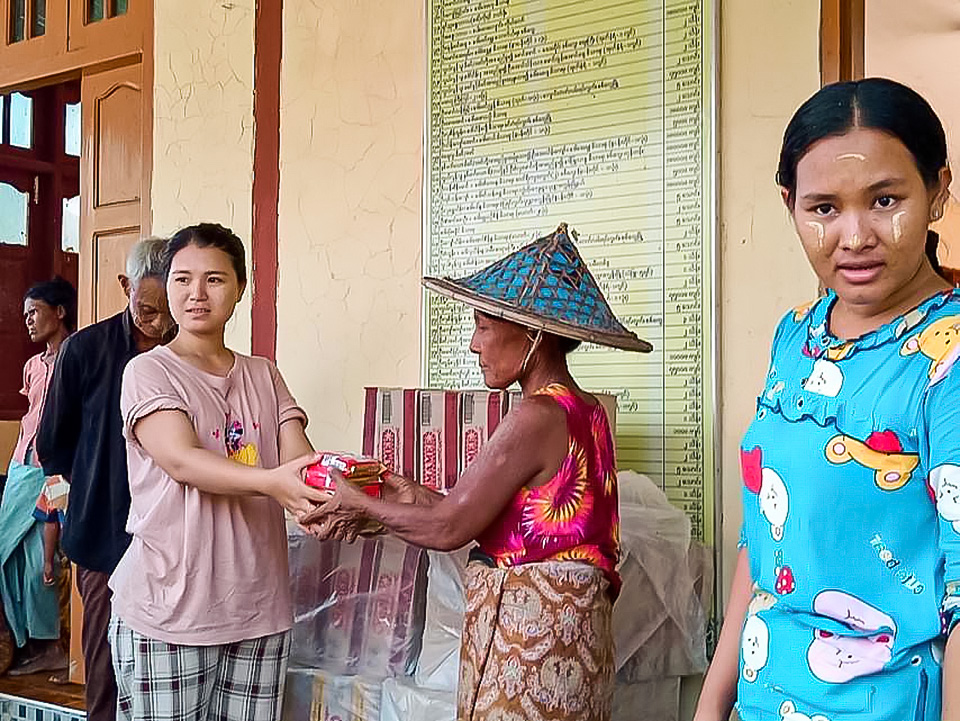
People in the affected communities urgently need food, shelter, clothing, essential household items, water, sanitation, hygiene, and healthcare services. And for women and children in particular, damage to shelters and infrastructure increases the risk of sexual gender-based violence and makes it harder to access urgent sexual and reproductive health services.
Humanitarians will soon be sharing a detailed two-week distribution plan, for approval, outlining support that is ready to be provided to all affected communities in Rakhine and Chin States.
In the meantime, partners who already have access are prioritizing the distribution of food and critical relief items where they can. Efforts are also underway to transport additional supplies to address stockpile shortages, pending necessary approvals for movement within and outside the country.
UN Women Myanmar will be working with UN agencies and humanitarian partners to ensure the specific needs of women and children are prioritized throughout the response.
An urgent boost of funds is needed
The humanitarian community in Myanmar has launched a flash appeal to provide emergency relief to 1.6 million people in need, 55 per cent of which are women.
A total of USD 333 million is urgently required for the response plan to address needs in all the communities affected by the cyclone and its aftermath.